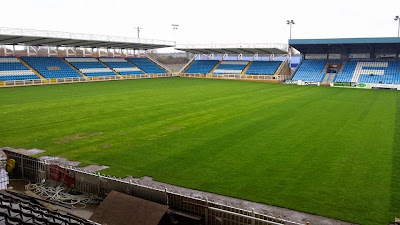 As
the new boys in the Northern Union in 1921, Rovers needed to build a side
blending experience and youth. In the front-row, John Willie Higson provided
the experience, and a local youngster quickly stepped up to the mark too.
As
the new boys in the Northern Union in 1921, Rovers needed to build a side
blending experience and youth. In the front-row, John Willie Higson provided
the experience, and a local youngster quickly stepped up to the mark too.Ernie Barraclough cemented his place in history when he lined up as one of the ‘Thirteen Originals’ who took the field for Rovers’ first ever senior match. No-one could have predicted that the fresh-faced teenager would go on to become one of the mainstays of the first team for the next thirteen seasons. So well did the young Barraclough learn his trade from Higson that he soon became indispensable. A prerequisite of any good front-row forward in those days was to be fully versed in the dark arts of scrummaging and as open side prop Barraclough’s job was to provide all the service and support his hooker needed to win the team a decent quota of possession. In those days of unlimited tackles, forty or fifty scrums a match was not uncommon and work ‘in the loose’ was secondary to scrummaging ability as far as props and hookers were concerned. Barraclough though was a big man who developed a reputation as a solid and hard-working tackler, and was also practised in the skill of dribbling the ball, an old tactic forwards would occasionally use to try and gain quick territory downfield at the risk of losing precious possession. Deftness of foot as well as intimidating size was required to do this successfully. It also brought Ernie 21 career tries, a small number by today’s standards but a reasonable return at a time when prop forward was such a specialised position.
Barraclough’s
consistency won him county honours and he was capped by Yorkshire in 1925, but
the possibility of international honours escaped him, possibly due to playing for
an unfashionable club with no clout on international selection committees. Over
the years he evolved good working partnerships with fellow props Bert Woolley,
Rogerson and Oliver Darlison, as well as hooker Percy Morris.
If
Ernie had a weak point, it was perhaps his temperament. Sendings off and the
ensuing suspensions were a fairly regular occurrence for him, something he no
doubt considered an occupational hazard. He also had his odd difference with
the committee over pay and conditions. Nevertheless he stuck with the club
through good years (the 1928 Championship and Yorkshire Cup finals were highlights) and lean years (especially
in the early thirties when times were grim). His final total of 435 first team
matches is still second only to Jim Denton on the club’s all-time appearances
list, remarkable durability for a front-rower. After retiring in the summer of
1934 he surprised everyone by arranging terms with Broughton Rangers and was
transferred there for the start of the following season at a cost of £100.

No comments:
Post a Comment